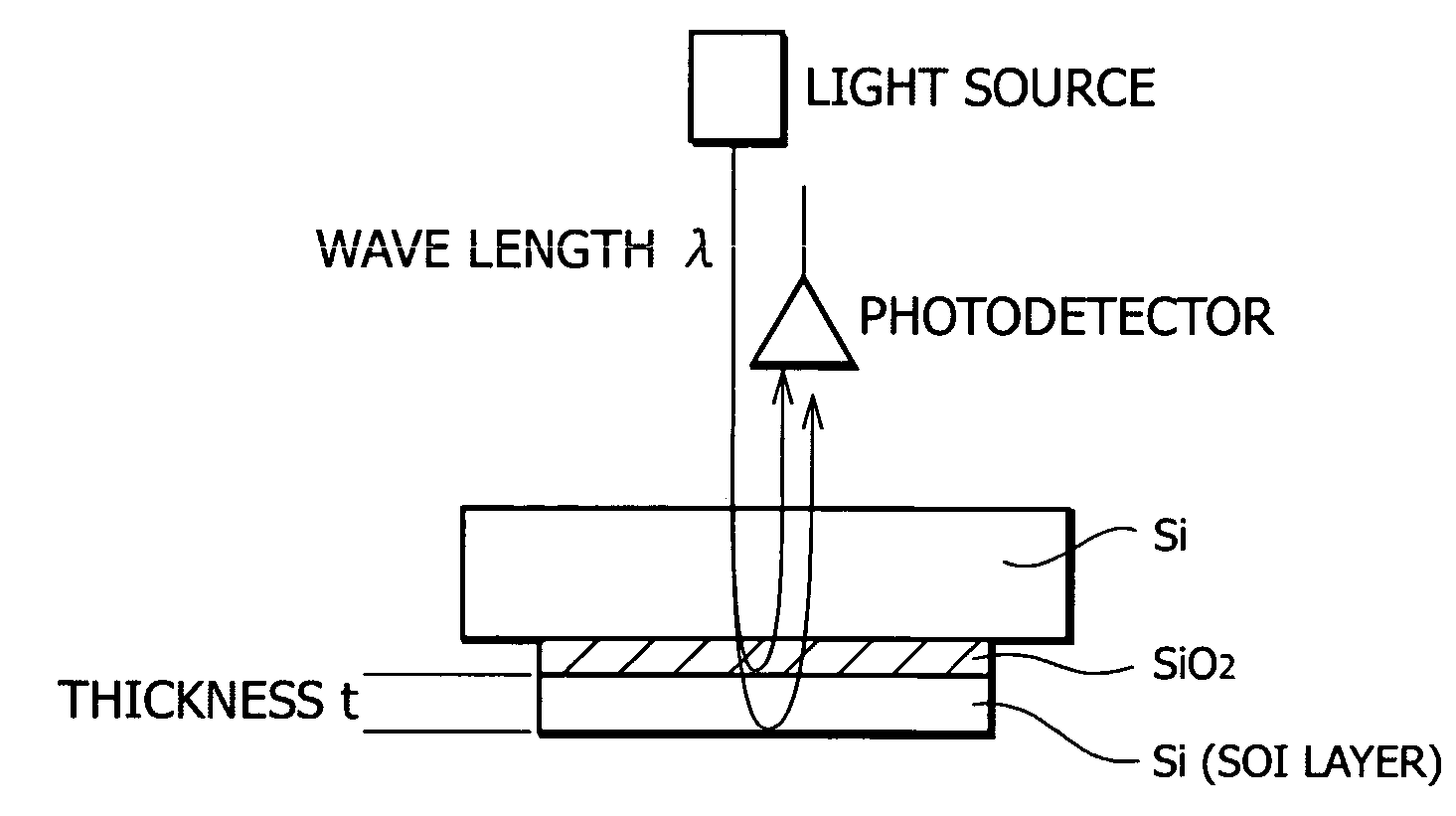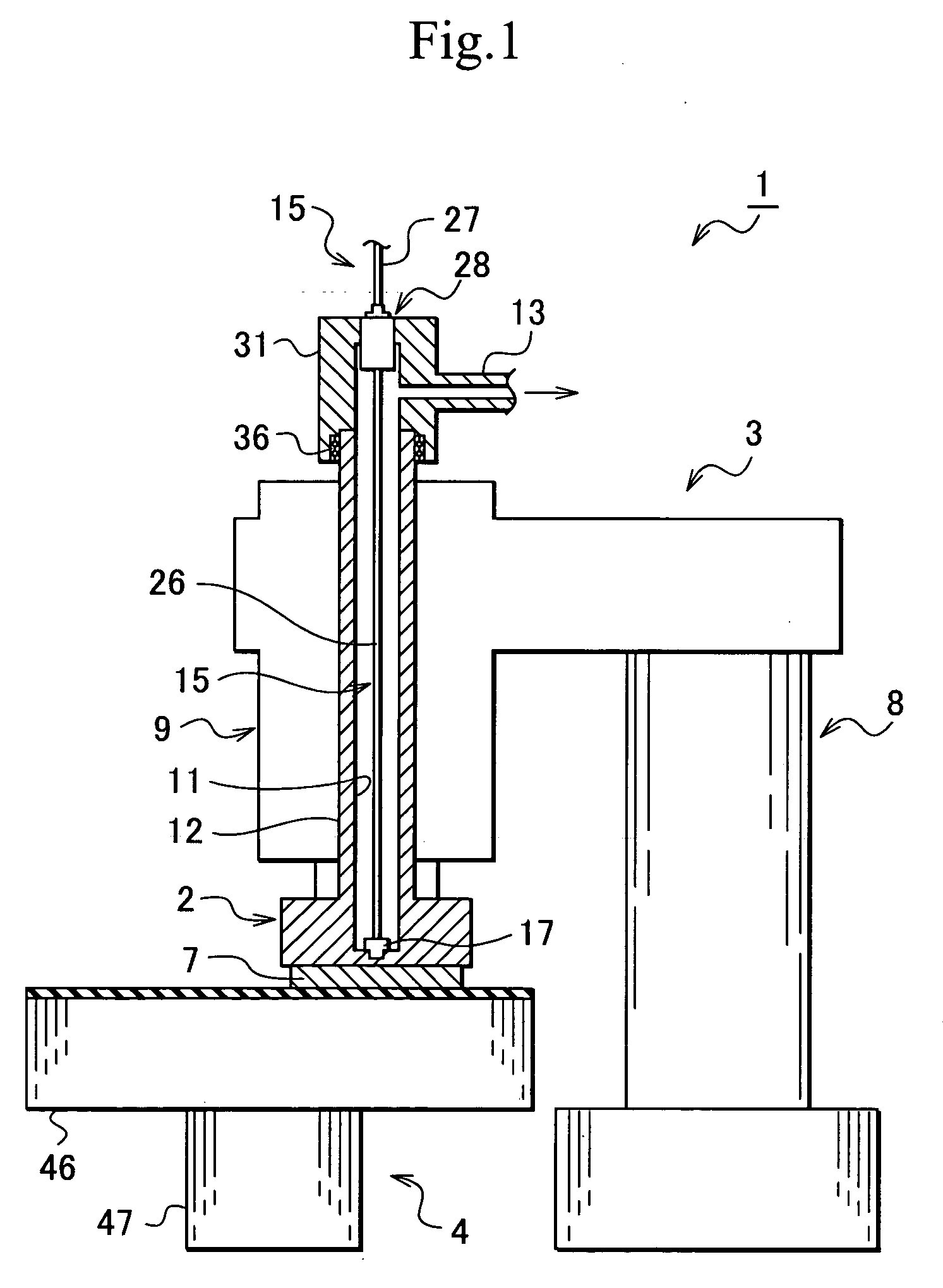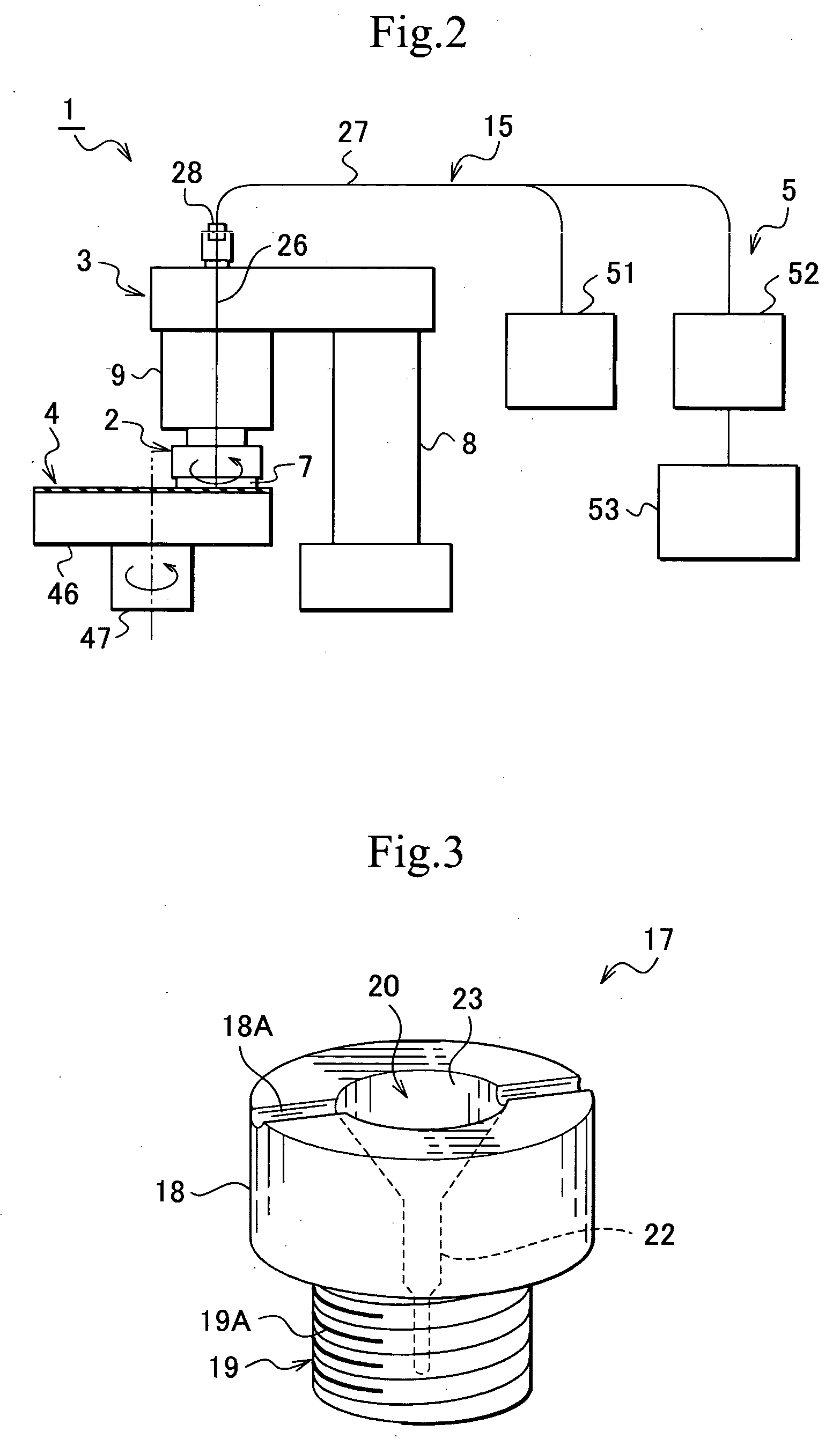Method for measuring thickness of thin film-like material during surface polishing, and surface polishing method and surface polishing apparatus
a technology of thin film-like material and surface polishing method, which is applied in the direction of lapping machines, manufacturing tools, instruments, etc., can solve the problems of affecting the assembly micromachine and microsensor performance, affecting the flatness and parallelism of silicon wafers, and affecting the quality of an integrated circuit, so as to achieve accurate measurement, easy insertion and pulling out, and accurate performance
- Summary
- Abstract
- Description
- Claims
- Application Information
AI Technical Summary
Benefits of technology
Problems solved by technology
Method used
Image
Examples
Embodiment Construction
[0064]The preferred embodiments of the invention will be described referring to the accompanying drawings.
[Surface Polishing Apparatus]
[0065]As shown in FIGS. 1 and 2, a surface polishing apparatus mainly includes a holder unit 2, a main body unit 3, a polishing surface plate 4, and a control unit 5.
[0066]The holder unit 2 holds a wafer 7 which is of the thin film-like material to be polished. The holder unit 2 is rotatably supported downward at a lower end of a rotation support unit 9 of the main body 3 mentioned later. The lower surface of the holder unit 2 is one which sucks the wafer 7. Specifically, a plurality of suction ports (not shown) for evacuation is provided in the lower surface of the holder unit 2.
[0067]The main body unit 3 rotatably supports the holder unit 2 and drives rotation of the holder unit 2 at the setting number of revolutions during the polishing. The main body unit 3 includes a base unit 8 and the rotation support unit 9. The base unit 8 is fixed to a floo...
PUM
 Login to View More
Login to View More Abstract
Description
Claims
Application Information
 Login to View More
Login to View More - R&D
- Intellectual Property
- Life Sciences
- Materials
- Tech Scout
- Unparalleled Data Quality
- Higher Quality Content
- 60% Fewer Hallucinations
Browse by: Latest US Patents, China's latest patents, Technical Efficacy Thesaurus, Application Domain, Technology Topic, Popular Technical Reports.
© 2025 PatSnap. All rights reserved.Legal|Privacy policy|Modern Slavery Act Transparency Statement|Sitemap|About US| Contact US: help@patsnap.com



